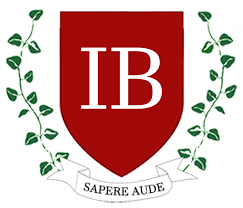How to Record Your Experiences for Application Essays

Image by Hữu Thanh Cái from Pixabay
by Michelle
Hey Essay Narwhals!
Do you remember what you had for lunch three days ago?
How about what you had for lunch one month ago?
Do you remember the title of that one catchy song you heard one day ago?
How about the title of the catchy song you and your dance team practiced to a year ago?
You can’t remember?
Even for the most type-A personality, Hydro Flask toting, conscientious bullet-journaling student, it can be a challenge to remember small details of experiences in day-to-day life, no matter how fun or life-changing the experience was.
Most of us are familiar with the idea of short-term and long-term memory. It’s perfectly normal for most people to not recall every single minutia of their days, especially if the information does not seem that important.
But when it comes to later writing your college application essays during the 12th grade, why is this a problem?
Well, as our past EssayNarwhal blog posts have mentioned, writing a story from the small details and small moments can really help make it stand above the crowd of other essays. We’ve also had a previous post which suggested ways for you to practice writing, such as journaling.
What this post will discuss today is how an Essay Narwhal can record their past experiences in a more focused direction, so when it is time to write your application essays, you can swim more easily through the whole process!
What are the experiences should you record for your essays and what are the methods you can use to record it? Essay Narwhals can think about using these methods below, especially for their high school time around 10th grade to 11th grade.
1.The Small Stuff about you
As a disclaimer, all know that a person is much more than the sum of their parts on which books they like or what movies or food they consume. Nevertheless, the types of movies you like or the food you crave can also show something about you. Think about all the people who argue about whether pineapple belongs on pizza.
These experiences (your favorite likes and dislikes for books, movies, songs, food etc) also make up the easiest types of experiences for students to start tracking on their own.
For a student who loves books, you can consider starting a small record of the books that stand out to you on sites like Goodreads or alternate book review sites like The Storygraph.
Are you a film buff for noir films or love historical period films with social commentary? Think about starting to track your favorite movies and new shows you’ve watched on a site like letterboxd.
Now, if a college essay prompt asks about your favorite movie, or you want to write about how a nonfiction book lead you down to contemplating the connections between racism and architecture in U.S. cities, you’ll be ready.
2. What have you Learned or What do you Care about in the World?
In essence, what social issues or important topics affecting society do you as a student care about? And how did you learn about them? Colleges love to know that a student has some awareness of the world around them.
For recording down these experiences on social issues you learn about, you can consider using something as simple as a paper journal, or even just a Google Doc.
Any time you’ve read or experienced something related to your community or a social topic that sticks out to you, you can record it.
Did you read a memorable newspaper article about issues of repatriating certain museum artworks to the countries the artifacts had been taken from? Save a link to it.
Did you watch an award-winning nonfiction documentary about medical insurance and concerns on data privacy, and you’re planning on studying computer science? Save some notes on it.
3.Emotional or Important Experiences
What experiences you consider as emotional or important would be up to you. For recording these experiences, again, you can use any kind of method like journaling on an online blog or noting it down on a Word Doc for your own knowledge.
The experiences you can classify as emotional or important may not necessarily have anything to do with flashy, external achievements like getting on the honor roll or winning a music competition.
For example, maybe you once helped translate documents about voting rights into your native language, and that led to you thinking about representation and access to enfranchisement and government powers in other countries. Or maybe one time you helped your grandfather look after his garden during the summer, and he shared stories about his past as an artist that inspired you and connected the both of you. Any experiences that make you think deeply or emotionally moved you in some way would be good to record down, whether as bullet points or in a journal entry format.
To later find your best stories for an essay, as an Essay Narwhal, you want to make sure to note down important moments consistently, so that your good experiences don’t disappear into an ocean of forgetfulness!

